Please see the following for details:
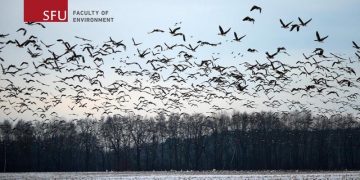
Please see the following for details:

December 5, 2016
RES PhD candidate Tugce Conger was in North Saanich, BC leading a workshop on the potential impact of climate change on sea levels.
You can find the news article here:
http://www.peninsulanewsreview.com/news/402548005.html
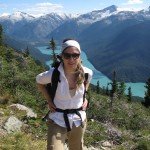
Tugce Conger
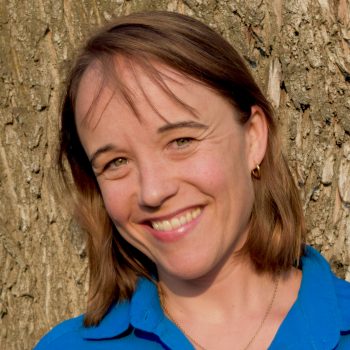
PhD with Kai Chan & Terre Satterfield, 2016
Assistant Professor, Utah State University
s[dot]klain[at]gmail[dot]com
sarah[dot]klain[at]usu[dot]edu
https://sarahklain.weebly.com/
https://qcnr.usu.edu/directory/klain_sarah
Klain completed her MSc and PhD at IRES with Kai Chan as her adviser and closely worked with Terre Satterfield.
Klain’s research at IRES on social and cultural dimensions of ecosystem services as well as risk perception and community engagement associated with renewable energy projects was an excellent springboard to build her career based on conservation and climate change mitigation. She’s currently an Assistant Professor in Environment & Society at Utah State University. She and her students are doing research on ecologically regenerative renewable energy and weaving indigenous, local and western scientific knowledge for rewilding.
Last updated January 2022

PhD with Peter Dauvergne, 2016, Adjunct Professor, UBC IRES, Senior Policy Advisor, International Institute for Sustainable Development
https://www.iisd.org/people/sara-elder https://www.linkedin.com/in/eldersara/ https://scholar.google.ca/citations?user=VMK93AEAAAAJ&hl=en
Sara Elder is an Adjunct Professor at the Institute for Resources, Environment and Sustainability at UBC. She specializes in interdisciplinary research related to the local social and environmental impacts of global supply chain governance, with a focus on agricultural producers and workers in the global South. She currently works as a Senior Policy Advisor with the International Institute for Sustainable Development (IISD), leading research and policy initiatives related to the impact of voluntary sustainability standards.
Sara holds a Ph.D. from UBC, where she was recognized for her work bridging private governance and development studies theory with on-the-ground outcomes for smallholder commodity producers. She has 15 years of experience in policy-relevant research and analysis, having managed global research projects, led extensive fieldwork in Rwanda and Nicaragua, and worked with communities in Bolivia, South Africa, Kenya, and Tanzania.
She is active in publishing and presenting her scholarly contributions, and is dedicated to mobilizing scientific knowledge in policy, in her current work as well as in her past positions as a Mitacs Canadian Science Policy Fellow with the BC Ministry of Agriculture and as a Technical Officer with the International Labour Organization. She is committed to effective teaching and mentoring, and recently designed a new course at UBC (SCIE 320) in socio-ecological systems research for undergraduate students to gain hands-on experience conducting interdisciplinary research.
Sara can be reached by email at sara[dot]elder[at]ubc[dot]ca
Last updated August 2022
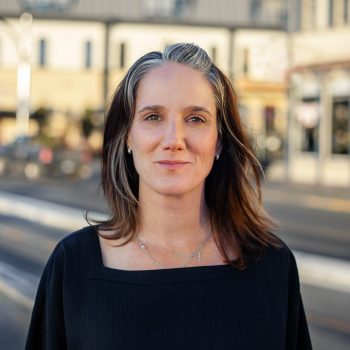
Lisa completed a PhD at IRES under John Robinson (now at the University of Toronto), and now applies her expertise in climate change, sustainability, and resilience planning as the lead of the Policy and Planning team at Integral Group. She and her team work on projects ranging from zero-emissions buildings codes and plans to energy and carbon disclosure policies, citywide climate plans, campus and portfolio decarbonization strategies, and risk and resilience assessments. She is the author of several academic publications on strategies for increasing climate change resilience and energy and emissions reductions, and was the winner of the Canada Green Building Council’s Green Building Champion Award in 2019.
Last updated April 2022
Ponderosa Commons Room 2012
6445 University Boulevard
MAP: www.goo.gl/maps/pueMWppkJQp
RSVP: www.edst.educ.ubc.ca/buttedahl
CALENDAR: http://www.calendar.events.ubc.ca:80/s/7Qd


Photo credit: Pietro Zuco from flickr/Creative Commons
Please join us on November 22 for a research seminar with Dr. Andrea Suárez Serrano, Research Director of the Mesoamerican Center for Sustainable Development in the Tropical Dry Forest (CEMEDE) at the National University of Costa Rica.
Dr. Suárez Serrano will talk about current research projects developed by CEMEDE and by the Water Resources Center for Central America and the Caribbean (HIDROCEC). After her presentation there will be time for Q&A with the participants.
When: Wednesday, November 22 from 12:30-1:30pm
Where: AERL Room 107/108 (Aquatic Ecosystems Research Laboratory, 2202 Main Mall)
Everyone welcome.
Click for poster for Seminar: Andrea Suarez
ABOUT THE PRESENTER
Dr. Andrea Suárez Serrano, Professor and Research Director
Water Resources Center for Central America and the Caribbean (HIDROCEC)
Mesoamerican Center for Sustainable Development in the Tropical Dry Forest (CEMEDE), National University of Costa Rica
PhD, Applied Ecology, University of Barcelona, Spain [2012]
BSc, National University, Costa Rica [2003]
Professional experience
Researcher, Institut de Recerca i Tecnologia Agroalimentàries, Spain [2009 – 2010]
Research Assistant/Lecturer, Instituto Regional de Estudio en Sustancias Tóxicas, Costa Rica [2001 – 2006]
Bio
Dr. Suárez Serrano has extensive research experience in aquatic ecology, ecotoxicology, and water management. Currently, she is the Director of CEMEDE that oversees the water program HIDROCEC. She has developed and coordinated the Hydrological Engineering program at HIDROCEC, where she has also taught courses on socioenvironmental sustainability and natural resources, freshwater ecosystems, and culture and sustainability. She has helped organize several international meetings and conferences in Costa Rica on water treatment and water governance, as well as leading capacity-building workshops.
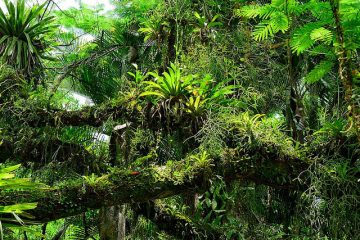
Photo Credit: Digitearte from flickr/ Creative Commons
Trends and future priorities for market-based marine conservation initiatives
Dr. Dalal Al-Abdulrazzak
Ocean Wise Seafood Specialist
Honorary Research Associate, IOF
Friday, November 17, 2017
11:00 am
AERL Theatre (120)
This year marks the 20th anniversary of the sustainable seafood movement. A number of NGOs, businesses, and producers have put considerable effort into educating consumers and influencing seafood sustainability throughout the supply chain. This talk with summarize some of the global trends and future priorities of market-based marine conservation initiatives with a particular focus on Ocean Wise in Canada. I will discuss the market forces that help drive change on the water as well as the limitations such as the ability to influence fisheries sustainability in developing countries.
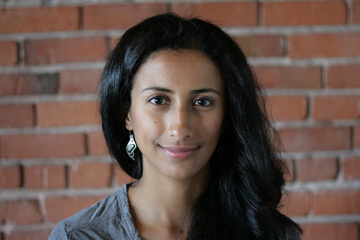
Dr. Dalal Al-Abdulrazzak is the Seafood Specialist with the Ocean Wise Seafood Programme where she is responsible for setting the scientific direction behind seafood recommendations. She also works closely with seafood suppliers and distributors to advise them on sustainable sourcing, fishing, and aquaculture practices. She was formerly an Ocean Policy Analyst at the United Nations Headquarters in New York City and a Postdoctoral Research Fellow at the University of British Columbia’s Fisheries Centre, where she also did her PhD. She is particularly interested in issues related to overfishing, applied use of historical baselines, and the global impact of ghost fishing.
November 8 2017
3E+ Evaluation of REDD+: Findings from a pan-tropical sample of pilots
Abstract: REDD+ (reducing emissions from deforestation and forest degradation) is expected to play an important role in climate change mitigation. It is also expected to generate co-benefits that help meet the sustainable development goals. This presents design challenges for REDD+, and hundreds of pilot projects have been launched to demonstrate and test alternatives. The Global Comparative Study on REDD+ demonstrates the potential impacts of REDD+, and offers methodological lessons for operationalizing performance-based payments and social safeguards.
Bio: Erin Sills is a professor of forest economics and coordinator of international programs in the Department of Forestry and Environmental Resources at North Carolina State University, and a research associate of Center for International Forestry Research, Environment for Development, and Amazon Institute of People and the Environment.
Location: Centre for Advanced Wood Processing (CAWP) 2916
Date: Nov. 17, 2017
Time: Noon
Lunch will be provided for the first 40 attendees.
Poster of Forestry Seminar click here

Photo Credit: Rudolf Vicket from flickr/ Creative Commons
November 11 2017
The Oceans Enabling Sustainable Development, and Development Enabling Sustainable Oceans: Research to Support Global Goals
Dr. Gerald Singh
Nippon Foundation Senior Nereus Fellow
Friday, November 10, 2017
11:00 am
AERL Theatre (120)
In 2015, 194 countries adopted the UN Sustainable Development Goals (SDGs) – 17 aspirational goals with 169 targets promoting global efforts to eradicate poverty and hunger, promote education and reduce inequalities, grow economies and protect and restore natural systems (among others). There is a specific goal set for the global oceans named SDG 14: Life Below Water. Over forty-five countries have expressed support for a recent proposal from the Intergovernmental Oceanographic Commission to call 2021-2030 the International Decade of Ocean Science for Sustainable Development. The establishment and buy-in of these goals presents an unprecedented opportunity for both positive research programs to study social-ecological systems (e.g. can the goals all be achieved together, and if so under what conditions?) and normative research to establish policy trajectories to actually achieve the SDGs (e.g. what targets should be prioritized to make progress across most goals possible?). However, there is a risk that researchers use the SDGs simply as a vehicle to validate and valorize ideas already held and research already underway regardless of the existence of SDGs.
In this talk, Dr. Singh will outline initial studies undertaken by the Nereus Program to relate ocean sustainability positively and negatively to the SDGs, and plans for future research on oceans and SDGs, partnering with national governments, intergovernmental organizations, and international NGOs. Making progress towards the SDGs will depend in part on relevant research highlighting important ways to promote them while also avoiding mistakes and avoidable tradeoffs in policy.
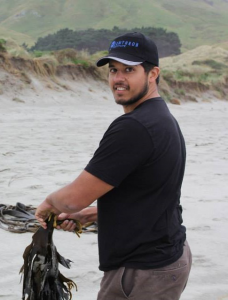
Gerald Singh is a Senior Research Fellow with the Nereus Program at the University of British Columbia. He leads the research at Nereus on oceans and sustainable development. His background is on coastal and marine resource management for ecosystem services, cumulative impacts assessment, and marine community ecology.

Photo Credit: Alf Atendorf from flickr/ Creative Commons